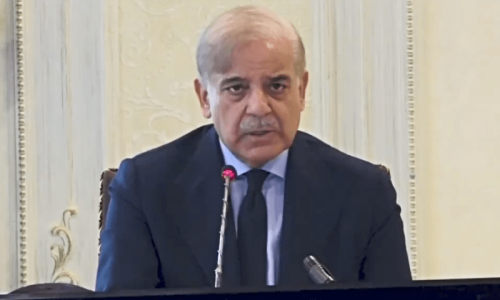WASHINGTON, Jan 5: A new intelligence law, and now a court ruling, have further strengthened the US government's power to strip a person of his citizenship even if he committed the crime after naturalization.
A federal appeals court on Tuesday allowed the government to strip a Haitian-American restaurant owner of his citizenship even though he was indicted, arrested and convicted after naturalization.
Also on Tuesday, federal agents in Atlanta arrested a prominent Ethiopian human rights abuse suspect and put him in deportation proceedings, for the first time using legal powers granted under a newly-signed intelligence reform law.
Immigration lawyers say that the two developments can have far-reaching consequences for thousands of immigrants from Muslim countries who already complain that they have become terror suspects since the Sept 11, 2001 terrorist attacks believed to have been carried out by Muslim men.
A large number of Muslim immigrants, including hundreds of Pakistanis, have been deported since 9/11 but most of them were visitors, guest workers and green card holders. Naturalized American citizens were deported only if they were found guilty of having lied in their naturalization applications about a criminal record.
But the 11th US Circuit Court of Appeals has now allowed the government to revoke the citizenship of Lionel Jean-Baptiste, originally a Haitian national, and start deportation proceedings against him.
The precedent-setting case marks the first time in the court's jurisdictional area that the government is seeking to revoke the citizenship of a naturalized person who was indicted, arrested and convicted after becoming a citizen.
The government filed papers in 2002 seeking to strip Mr Jean-Baptiste of his citizenship. Mr Jean-Baptiste, who arrived in the United States in 1980, turned to the appeals court when a Miami federal judge ordered his citizenship revoked.
In the appeal, government attorneys argued that Mr Jean-Baptiste was not a person of "good moral character" before becoming a citizen. A three-judge panel of the appeals court agreed.
Mr Jean-Baptiste, 57 and a father of five, denies committing a crime. He says he only learned of allegations against him when federal agents arrested him on drug charges in October 1996 -- six months after becoming a citizen.
In Atlanta, federal agents arrested a prominent Ethiopian human rights abuse suspect and put him in deportation proceedings, for the first time using legal powers granted under a newly-signed intelligence reform law.
Kelbessa Negewo, 54, was not put in removal proceedings before President Bush signed the law on Dec 17 partly because it would have been more difficult to prove he was deportable under previous law.
Mr Negewo gave up his US citizenship in October on the eve of a federal trial to revoke it. The arrest marked the first time federal officials use their new powers under the Intelligence Reform and Terrorism Prevention Act of 2004, which enables agents to open deportation proceedings on the basis of evidence implicating suspects in torture or killing.
Michael J. Garcia, the Department of Homeland Security's assistant secretary for US Immigration and Customs Enforcement, whose agents arrested Mr Negewo, said the new law strengthened his agency's ability to deny foreign torture suspects refuge in the United States.
"Today's arrest marks a new chapter in ICE's longstanding efforts to arrest, prosecute, and remove human rights violators from the United States," Mr. Garcia said. Mr. Negewo served as chairman of Higher Zone 9, a government unit accused of torturing and summarily executing foes of the former Marxist rulers of Ethiopia. "Mr.
Negewo was responsible for having numerous innocent civilians, mostly students, incarcerated, tortured, and subsequently executed by firing squad," a US Immigration and Customs Enforcement statement said.
A Bush administration official said last month that two former Salvadoran generals in Florida - Carlos Eugenio Vides Casanova and José Guillermo García - could be placed in proceedings in the future as a result of the new law.
Mr. Vides Casanova, former head of the national guard, lives in Palm Coast near Daytona Beach. Mr. García, a former defense minister, lives in Plantation in Broward county.













































Dear visitor, the comments section is undergoing an overhaul and will return soon.